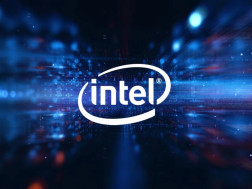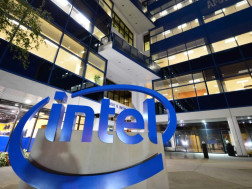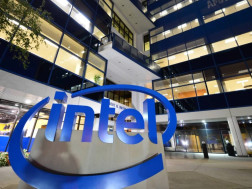Intel has named Pat Gelsinger as its new chief executive officer, replacing Bob Swan after a rocky two-year run.
The chipmaker recruited Gelsinger from software firm VMWare, calling him a "highly respected CEO and industry veteran" in a release. Gelsinger, who has been VMWare's CEO for about the past decade, will take the helm at Intel on February 15.
Intel (INTC) shares rose nearly 8% following the news, while VMWare (VMW) shares slipped almost 8%. CNBC first reported the news.
Swan was named Intel's permanent CEO in January 2019 following the departure of its previous CEO Brian Krzanich, who was forced to resign in June 2018 because of a "past consensual relationship with an Intel employee."
Under Swan, the company has struggled, losing market share to competitors in key business segments and dealing with manufacturing delays.
In its press release, Intel said the move "is unrelated to Intel's 2020 financial performance."
But "there have been a lot of questions about Bob Swan's leadership" after execution problems have raised questions over the past year about Intel's position as the market leader, said Kevin Krewell, principal analyst at Tirias Research.
He called Swan "a very capable CEO," but noted that "people were hoping [for] someone with more technical background" at the helm of Intel -- someone like Gelsinger.
And the leadership change comes after a letter to Intel from activist investor Dan Loeb of Third Point, calling on the company chairman to hire an investment adviser to explore "strategic alternatives" aimed at regaining market share from competitors. The suggestions in the letter included calls for the company to consider whether to continue making all of its chips in-house and divesting from "failed acquisitions."
In Wednesday's release, Intel said its board "concluded that now is the right time to make this leadership change to draw on Pat's technology and engineering expertise during this critical period of transformation at Intel," adding that the change will "ensure strong execution" of the company's new future.
Chip challenges
Among Intel's biggest challenges at the moment: The company has fallen behind competitors in producing the most advanced microprocessors.
Intel in recent years struggled to move from a 14-nanometer to a 10-nanometer chip, and it said in July that its 7-nanometer chips (which some of its rivals already have) would also be delayed. Meanwhile, rivals Taiwan Semiconductor Manufacturing Company (TSM) and Samsung (SSNLF) continue to move ahead with developing even smaller, more powerful processors.
As it grapples with the manufacturing difficulties, Intel also faces greater competition than it's "ever had in the past" in its core business areas, said Alan Priestley, vice president analyst for Gartner.
AMD (AMD) has stolen market share in the key PC and data center markets, and Nvidia (NVDA) has been investing heavily in the AI sector. Intel's PC business also recently took a blow when Apple announced it will use its own processors, rather than Intel's, in its new series of Macs.
Such issues have meant Intel's stock has also lagged behind competitors. The company's shares are down nearly 4% from a year ago, despite the bump they received from the news Wednesday. AMD's stock, by contrast, is up 87% over the past year, and TSMC's has grown nearly 99%.
"I hope that they'll come out with a real clear strategy about how they'll address the manufacturing issues, the competitive issues they face going forward," Gartner's Priestley said of Intel. He added that Gelsinger will need to address Intel's loss of technology leadership and decide how much of its technology to continue manufacturing in-house.
"(Gelsinger has) got to come out with a real clear strategy there," Priestly said, "something that gives the industry confidence that they're going to recover."
An Intel insider returns
Gelsinger brings to the top job a deep well of experience, both from within Intel and the broader business ecosystem in which the company operates.
Prior to his role at VMWare Gelsinger spent three decades at Intel, becoming became the company's first-ever chief technology officer and helped establish Intel's position as a market leader.
He then served as President and COO of Dell EMC, which sells IT infrastructure solutions such as data storage, cloud computing and analytics, before taking on the top job at VMWare.
At VMWare, Gelsinger oversaw massive growth. VMWare posted $10.8 billion in 2020 revenue, more than double the $4.6 billion it earned in 2012, the year Gelsinger became CEO. Both companies rely on innovations from chipmakers, insight that analysts say Gelsinger will bring as he returns to the chip giant.
"He understands the way Intel works and the technologies it has," Priestley said. "Because he's been at EMC and subsequently VMWare, I should hope he'll bring some interesting insights to the senior management team inside Intel, from an (equipment manufacturer) perspective and a major (software vendor) perspective ... he's seen it from the other side of the table."
Gelsinger also has a technical background — he architected the original 80486 processor at Intel and has associate's, bachelor's and master's degrees in electrical engineering — which has proven helpful to other Intel leaders in the past, as well as competitors like AMD CEO Lisa Su. Swan, by contrast, has a background in business management and finance; he was Intel's chief financial officer before becoming CEO.
"Intel has had a history of engineers becoming CEOs," Krewell said. "There's been exceptions of course, but in general, there's been a strong preference to have a technical CEO."
Source: CNN
















